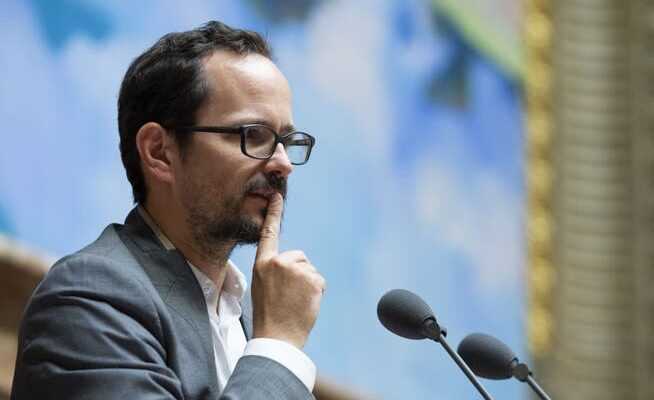The strengthened Greens wanted to distinguish themselves in the left camp with their own climate fund initiative. Now they have merged their project with that of the SP. It only superficially looks as if the Greens President Balthasar Glättli let himself be ripped off by the Social Democrats.
Not too bold against the SP: Greens President Balthasar Glättli.
Under normal circumstances, the Social Democrats and Greens are surprisingly good at keeping inter-party tensions under wraps. Last November, however, things were bubbling so hard that emotions leaked out. The two parties each launched a climate initiative. The Greens President Balthasar Glättli announced in the “NZZ am Sonntag” a climate fund “for the ecological turnaround”. When the party sent out the media release on Sunday morning, the SP had already anticipated it. She announced that she would develop an initiative for a climate fund.
Then the poison arrows flew back and forth in the left camp. Greens found the action of the SP “embarrassing”. Social Democrats scoffed that it was significant that the Greens went to the media even before they had drafted an initiative text. There were two initiative projects by two parties from the same camp with the same topic and approach.
Two months later, the SP and the Greens merge their initiatives. In a concerted action with interviews in German and French-speaking Swiss newspapers, Glättli and SP co-president Cédric Wermuth are forgiving. Glättli whispers in the weekly newspaper: “I see it like Cédric: the opponent is on the right, the future is left-green.”
Social Democrats are more willing to play power games
It looks as if Glättli gave in all too quickly. The Greens want to free themselves from the junior position on the left camp that they have internalized for decades. Her ambitions have risen since her representation in the 2019 elections in the National Council grew to nine seats behind the SP. The climate fund initiative was actually intended after the crash of the CO2law to relaunch the topic – and to make a mark in the left camp. By bringing the SP on board, Glättli carelessly squandered the Greens’ lead.
In the short term, the Green President awards a few points. They wanted a little more distance to their sister, who was no longer that big. Now you’re sitting side by side again and mimic good understanding. This also says something about the two parties. The Social Democrats are more willing to gamble on power, the Greens are more willing to give in. It hurts in this case, but in the long term the Greens should benefit more from the initiative than the SP. Polls show that when it comes to ecology, voters see one party in particular as competent: the Greens. If the issue is high on the agenda, they can reap. That may be frustrating for the SP, because they too have competent environmental politicians in their ranks. Exactly the opposite is the case with social issues.
Instead of chasing voters from each other within the left-wing camp, it would make more sense from a left-wing perspective to try to grow towards the centre. This would amount to a division of tasks: the Greens could cover the left fringe, the SP would open up towards the centre, as do the Social Democrats in other European countries. The SP would become more attractive to voters from the center or the GLP. But the project has a big catch: it would hardly work in practice. The influence of the trade unions on the party is too great and they did not allow the party to move towards the centre. Even the parliamentarians and party members of the SP, who are mostly left-leaning than their electorate, cannot simply be reversed.
Burgfrieden until the Federal Council elections
Back to Realpolitik: Now we’ve pulled ourselves together, but the big test in the left camp is yet to come. Do the Greens want to be in the Federal Council after the next elections? If they are serious about it, they must also attack an SP seat. Glättli can go on emphasizing that the absolute majority of the SVP and FDP in the Bundesrat is inappropriate. Parliament is unlikely to be willing to grant three seats in government to two parties with virtually identical positions.
